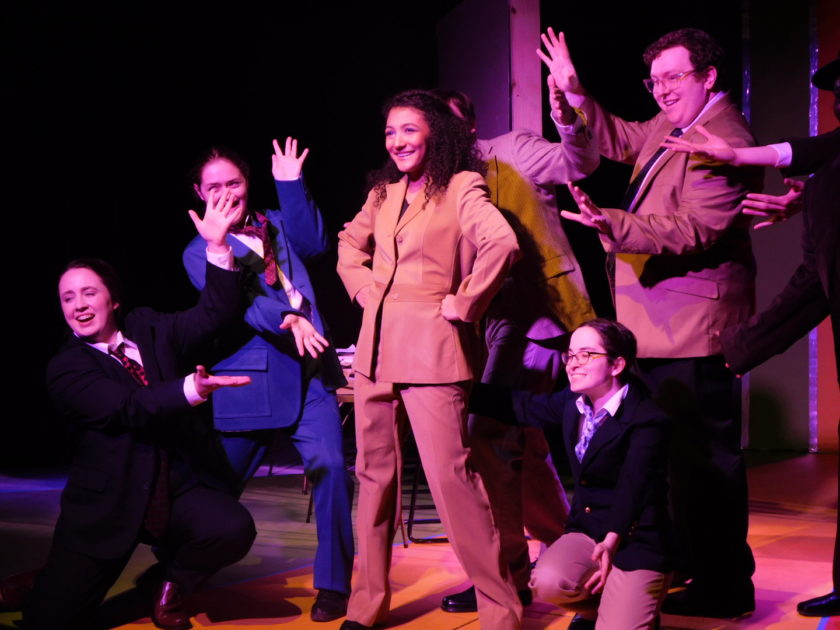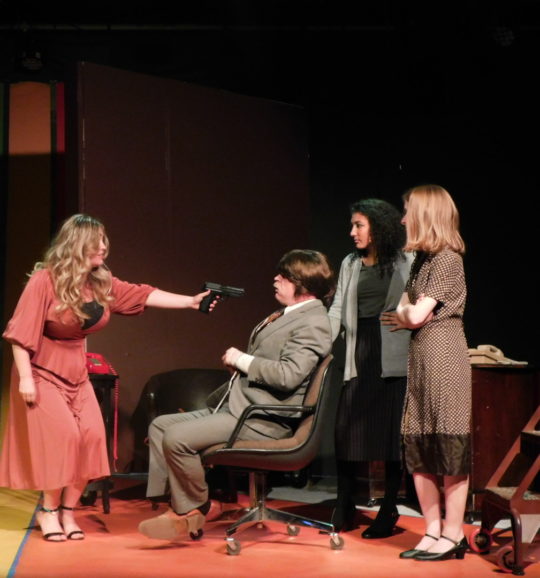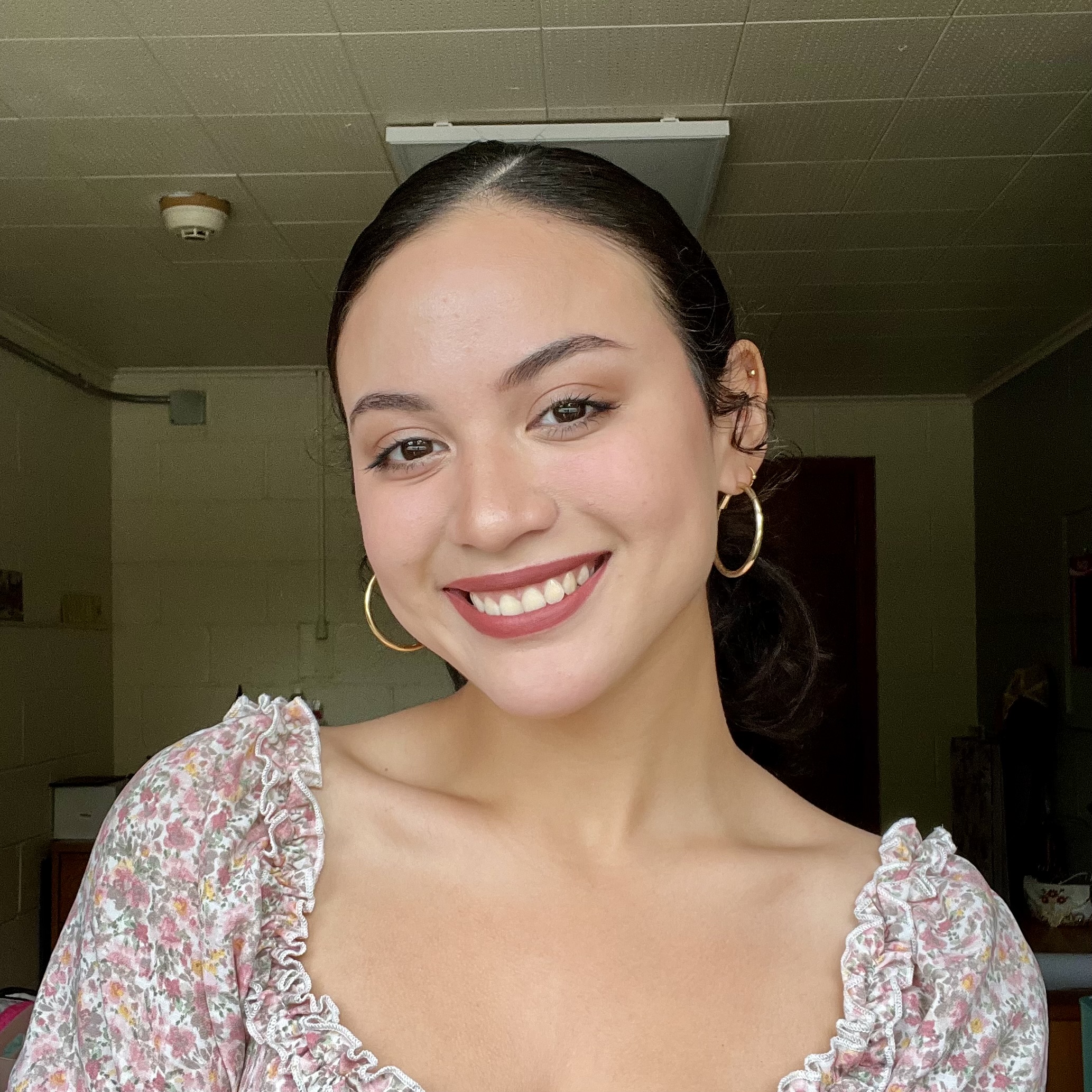The Cabaret Theatre continues to provide entertainment while defining a meaningful message.
Last semester, the theater department presented “Urinetown,” a satirical musical created with the intent to “expose capitalism, social irresponsibility, populism, bureaucracy, corporate mismanagement, and municipal politics.”
The most recent musical production was “9 to 5,” based upon the 1980 film sharing the same title.
“9 to 5” is a satirical musical directed by Joe Mantanello with music and lyrics written by Dolly Parton. Described by Music Theater International as “Three unlikely friends take control of their office and learn there is nothing they can’t do, even in a man’s world.”
Set in the late 1970s the musical highlights the struggles women of the past faced in a comedic fashion and provides the audience context as to why movements of feminism existed then and continue to persist today.
The two-act musical is exceedingly entertaining with colorful characters, imaginative fantasies and songs that leave one moving in their seat in genres ranging from country and powerful ballads to raunchy jazz.
In “9 to 5,” three female secretaries join forces to take over their company after their “sexist, egotistical, lying, hypocritical bigot” of a boss Franklin Hart Jr. continuously mistreats them and the office of the female gender.

The musical follows Judy Bernly, a divorcee learning to stand on her own; Doralee Rhodes, a misunderstood woman who loves country glam with a big heart; and Violet Newstead, a widowed mother of a teen who has “worked her a** off” and not reaped the benefits because she’s a woman.
Living in our current day, it can be difficult to portray mindsets and behaviors of the past. Stage manager Laura Wallace said, “[The show can be] definitely a little uncomfortable, and it probably throws you at first because this seems all funny and almost like satire, but it’s things that probably actually happened to some extent. They’re obviously exaggerated, but it still kind of throws you a little bit whenever you hear some of the things they say”
Cast member Madison Breyley who plays Judy Bernly further elaborates, “I think it’s hard, especially playing female characters. There’s a line about ‘what do you call a woman who’s lost 95% of her intelligence? Divorced.’ And even though I’ve never been divorced, I’m like gosh that’s a horrible line – but there are still people who act like that and while we have come farther than where they were in the 70s, it’s still at least somewhat relevant.”
The themes in the show have been shown to resonate with the cast. Senior cast member Gabriella Schnaidt felt similar frustrations to the character Doralee Rhodes. “There’s been many times where I’ve felt the same way as my character would feel – I know people are taking advantage of me, stereotyping me as one way because of the things I do or how I look.”

Through the experience of “9 to 5,” the cast felt they learned and could better conceptualize what it was to be a woman who was consistently criticized.
Schnaidt said, “It’s been almost therapeutic to understand feminism and what it really means and understanding the trials that we go through.”
Actress Madison Breyley also resonated with her character. “I think it’s been a good lesson in taking your power back. My character has a line where someone says ‘what’s gotten into you’ and she says ‘a backbone’. Finally standing up for yourself and showing that I deserve to be treated equally and fairly.”
The main lead Violet Newstead portrayed by Michelle Costell is seen throughout fighting against belittlement and oppression, with lines such as “Don’t call me your girl I am a woman” and a passion-filled monologue standing up for the “little guy.”

The character Violet works tirelessly simply to witness her male colleagues whom she’s trained and heeds her boss’s every command in hopes of a promotion.
Madison Breyley states, “She works her butt off and does all these things and if that doesn’t qualify her to be seen, heard and respected, what does?”
Gabriella explains, “In today’s age, we’ve seen all the different movements of feminism – we’re still trying to figure out our own way of how to overcome the obstacles that we’re facing and those barriers that we’ve seen how to mitigate them.”
Laura Wallace hopes the audience will “Take into account some of the things that used to happen in the late 70s and kind of bring that back and then see how far we’ve come with that and still keep moving in the right direction.”
While the marijuana-fueled fantasies of ridding their boss seem amusing, the underlying message speaks volumes. Wallace said, “I know it has inspired me to keep fighting for it and calling things out and calling it by a name and I hope our audience will be excited to do the same thing.”





